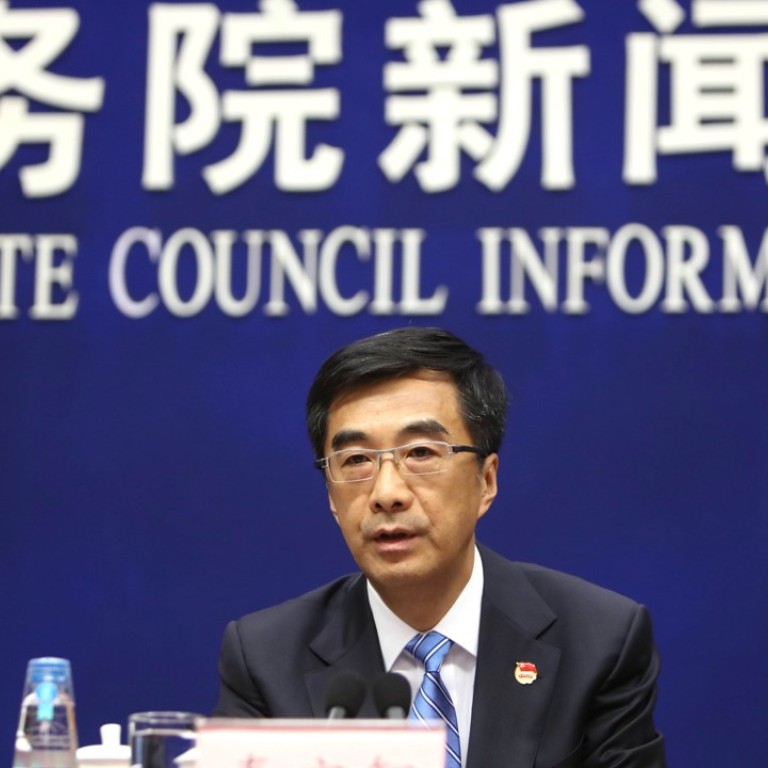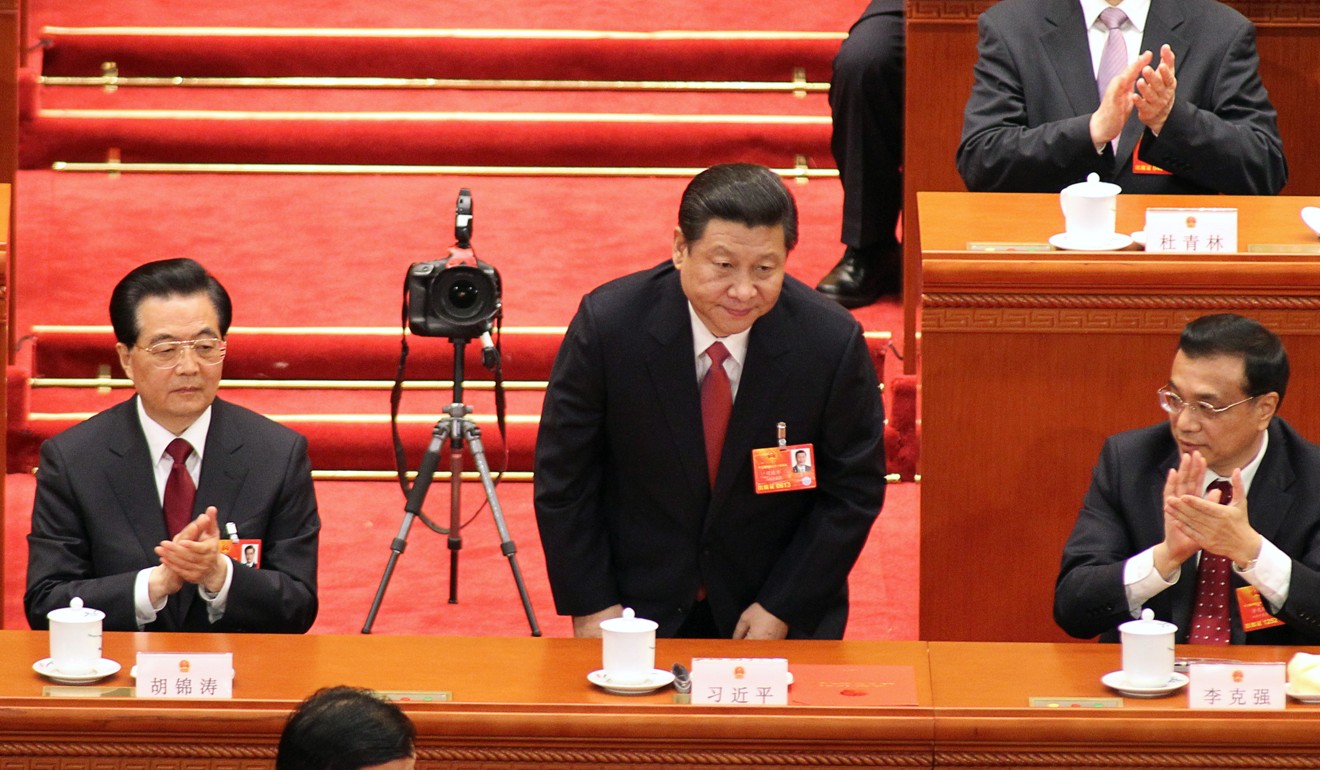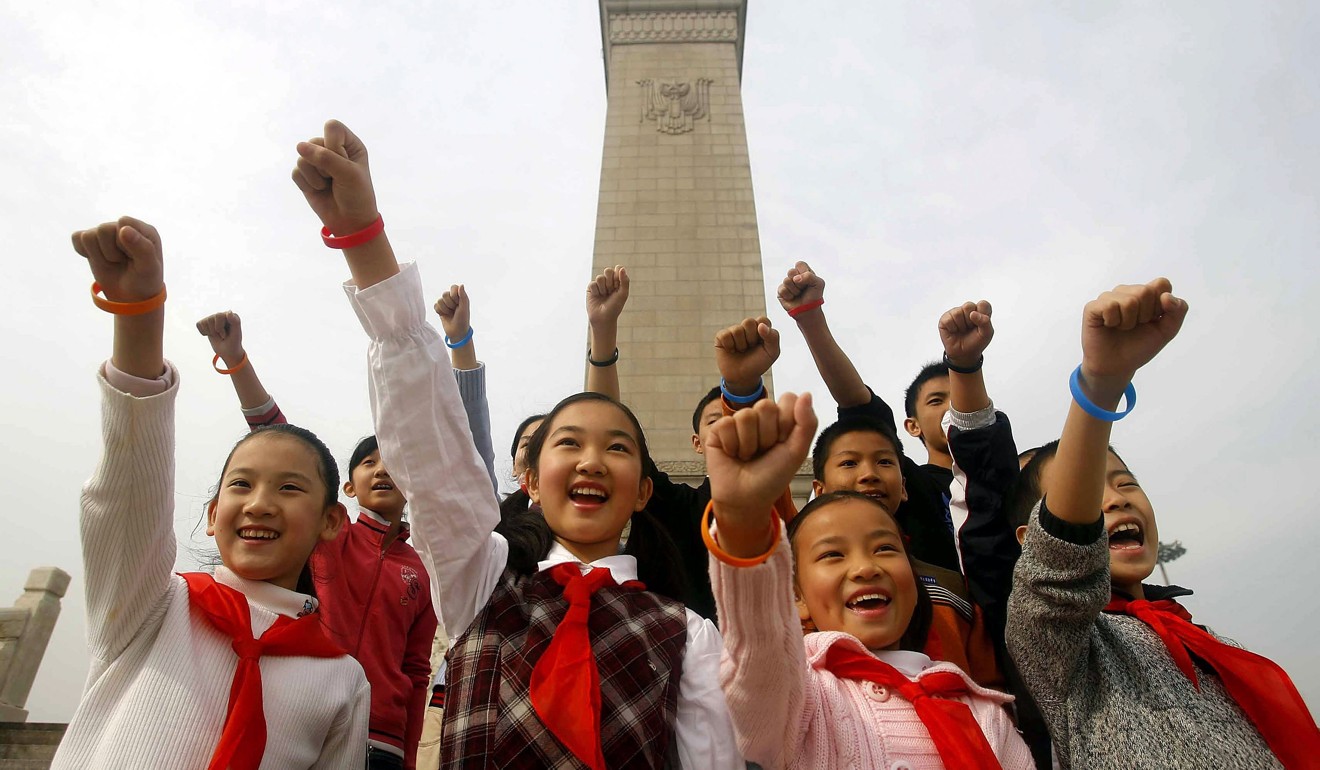
China Communist Youth League boss faces demotion, sources say, as influence of once powerful group wanes
Qin Yizhi to move to lower ranking government job, say sources familiar with the matter
The head of the Chinese Communist Party’s youth league – once the launch pad for many high-flying government officials careers – is likely to be demoted, sources familiar with the matter said.
If confirmed, the departure of Qin Yizhi, first secretary at the league, would deal a further blow to the beleaguered faction of the party that was the power base of former president Hu Jintao and current Premier Li Keqiang.
Qin has been told to move to another lower ranking job, the sources said.
His new position is likely to be as deputy head of a government agency under the State Council, or cabinet, according to one of the sources.
The reason behind Qin’s apparent demotion is unclear, but it would mean there is no chance of him rising to high government positions like many of his predecessors in the league.
Qin, 51, was not mentioned in a state media report about a meeting on Monday of the league’s Beijing branch.
The capital’s past two congresses in 2007 and 2012 were attended by Qin’s predecessors alongside Beijing city’s party bosses. Instead, the second most senior official in the organisation, He Junke, attended the meeting, the official Beijing Daily reported.
A Beijing-based source told the South China Morning Post: “Qin is leaving, but the news has not yet been made public.”
Qin’s predecessors were usually promoted to important posts after their stint at the youth organisation.
Lu Hao, Qin’s immediate predecessor, was appointed governor of Heilongjiang when he left in 2013. Hu Chunhua, the league’s chief before Lu, was appointed governor of Hebei province. He is now a member of the 25-strong Politburo.
Other former chiefs at the youth organisation include Zhou Qiang, China’s top judge, and Premier Li Keqiang.

But after the fall of ex-president Hu Jintao’s former top aide Ling Jihua in 2014 on corruption charges, another former member of the league, the party youth branch was heavily criticised by party inspectors who accused the organisation of having a self-serving attitude, with some cadres considering themselves “political aristocrats”.
The Post reported in July that Qin, along with a handful of rising stars linked with the youth league faction of the party, was omitted from the 2,300 list of delegates to the 19th Communist Party Congress this autumn. The omissions were rare, experts said, as political stars including Qin were already alternative members of the Central Committee, making up the party’s 400 elite.
The exclusion suggests that Qin and others are likely to be removed from the committee, according to analysts.
A third source close to the youth league said Qin had been plagued with unfavourable speculation for some time.
“I’ve learned that he will quit his current job before long,” the source said.
The career prospects of numerous young political stars linked to the league have waned over the past couple of years.
Liu Jian, formerly the top party official overseeing the prefectural level Hami city in Xinjiang was shunted sideways into a role as head of a subsidiary of the State Development & Investment Corporation in late June.
Meanwhile, Yang Yue, 49, was named the vice-governor of Jiangsu province last year. Analysts had tipped him to take the top job in the province, but Wu Zhenglong was appointed instead.

Professor Steve Tsang, director of the SOAS China Institute in London, said: “In the Deng [Xiaoping] era there were plenty of ageing cadres who had ‘passed their sell-by dates’ hanging on to power and blocking reform, hence the emphasis on promoting younger officials.
“The Communist Youth League was in principle always intended to be the cradle of future leaders of the Communist Party – that’s why it was created. But [the league] being a channel for promotion to the top was a relatively recent phenomenon that is no longer applicable under Xi,” said Tsang. “Xi does not have a strong link to the league and is a leader who focuses on using people from his own network.”
Kerry Brown, a professor of Chinese Studies and director of the Lau China Institute at King’s College London, said lifting age discrimination and putting more focus on officials’ merits and experience was a more effective way for China to promote cadres.
“Presumably if they are capable and competent leaders, then their skills will still be needed,” said Brown. “Why assume that a background in the league is going to give someone the sort of abilities – political and administrative – that are needed in dealing with the challenges facing China today?
“Clearing away these odd and arbitrary factional routes to power is actually rational. It is part of China’s road to modernisation.”


